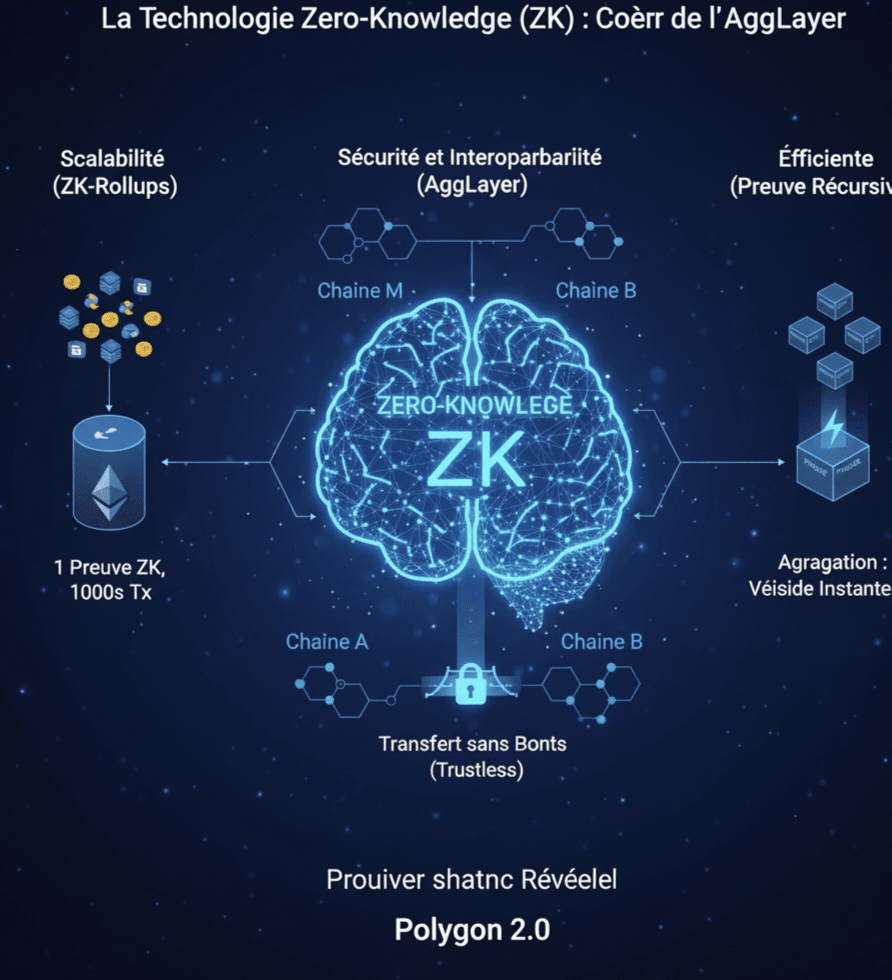Zero-Knowledge (ZK) Technology: The Heart of AggLayer
@Polygon #polygon $POL 
1. The Fundamental Concept
The classic analogy is that of a person proving they possess a password (the secret data) by generating a cryptographic proof that confirms: "I possess the correct password." The Verifier can validate the authenticity of the proof without ever seeing the actual password. The essence of ZK is to Prove without Revealing.
2. The Role of ZK in Polygon 2.0 and the AggLayer
ZK technology is essential for the vision of Polygon 2.0, as it simultaneously addresses scalability and security issues:
Scalability (ZK-Rollups) : To resolve Ethereum's costly congestion, a ZK-Rollup (like Polygon zkEVM) aggregates thousands of off-chain transactions. Instead of sending all these transactions to Ethereum, it only sends a single minimalist ZK proof. Ethereum verifies this unique proof rather than the thousands of individual transactions, drastically reducing gas fees and increasing speed.
Security and Interoperability (AggLayer) : ZK is the key to trustless security. The AggLayer uses ZK to prove the validity of transfers between chains. It generates a cryptographic proof that "funds have been correctly deducted on chain A and are ready to be credited on chain B." This cryptographic verification allows for atomic and trustless transfer, ensuring the security of inter-chain transactions.
Efficiency (Recursive Proof) : To manage the large volume of ZK proofs, the AggLayer uses recursive ZK proofs. This technique allows aggregating multiple proofs into a single final and concise ZK proof. This enables the finalization of transaction and transfer security at almost instantaneous speed.
In summary, ZK allows Polygon 2.0 to inherit the security of Ethereum, achieve massive scalability, and create trustless interoperability through the AggLayer.
Disclaimer: Includes third-party opinions. No financial advice. May include sponsored content. See T&Cs. 